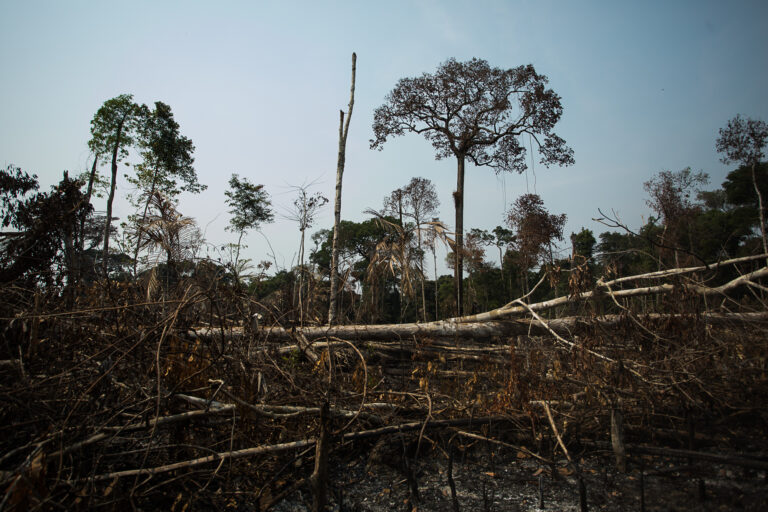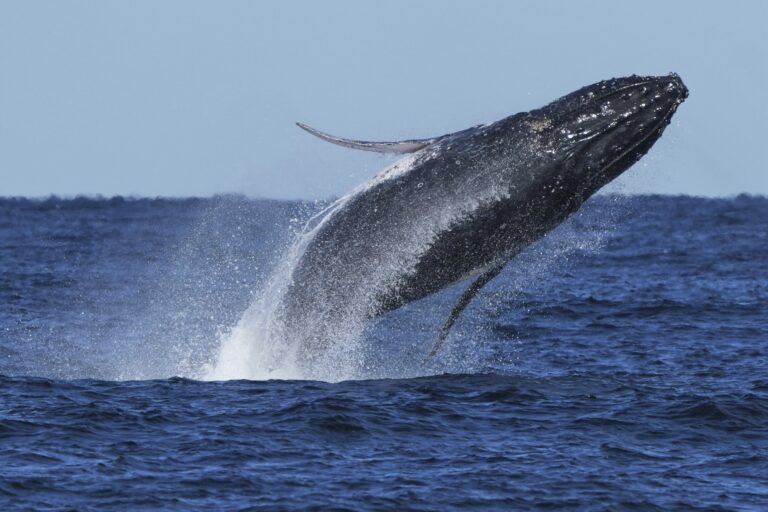- While funding past and present climate denial campaigns, four CEOs rejected accusations of past or present wrongdoing in a landmark congressional hearing
- The CEOs of ExxonMobil, BP America, Chevron and Shell Oil testified before the U.S. House Oversight Committee on Oct. 28 in a landmark hearing into how these companies spent decades lying about the climate crisis.
- Just days before the U.N.’s COP26 climate summit, hopes for more ambitious commitments to stopping the climate emergency were frustrated as the CEOs repeated industry talking points on green energy, but shied away from concrete commitments or admissions. An independent report on Chevron documented a $50.5 billion bill in unpaid environmental fines and damages around the world, only 0.006% of which the company has paid.
- While the CEOs pointed to their low-carbon investments, a report released earlier this year shows that clean energy accounted for just 1% of oil and gas capital investments in 2020, with 99% going into fossil fuels.
The heads of the world’s biggest oil companies denied accusations they misled the public on climate change, despite evidence of pending environmental damages and funding for climate denial campaigns presented in a landmark U.S. congressional hearing last week.
Executives from ExxonMobil, BP America, Chevron and Shell Oil, all appearing via Zoom, evaded allegations that the fossil fuel industry funds climate denial and hid scientific findings on fossil fuel’s impacts on the planet for decades. The hearing by the U.S. House Oversight Committee drew comparisons to the tobacco industry’s fraudulent testimony in the 1990s on the harms of smoking.
“For far too long, Big Oil has escaped accountability in its central role in bringing our planet to the brink of a climate catastrophe. That ends today,” committee chair Carolyn Maloney, said in her opening statement.
“The industry ran a coordinated campaign to mislead the public, hide the dangers of its own product, and derail global efforts to reduce greenhouse emissions. At the same time, they were lining their own pockets,” she added, pointing to documents going as far back as the 1970s showing that Exxon scientists knew about the connection between fossil fuels and global warming, but sowed doubt about the science in the public arena.
The CEOs rejected the claims. “I don’t think it’s fair to judge something 25 years ago with what we know today,” said ExxonMobil’s current CEO, Darren Woods, adding that the company “does not spread disinformation regarding climate change.″
His industry peers made similar statements, saying the fossil fuel industry is leading the way on the world’s transition to low-carbon energy.
“While our views on climate change have developed over time, any suggestion that Chevron is engaged in an effort to spread disinformation and mislead the public on these complex issues is simply wrong,” said Chevron CEO Michael Wirth.
Wirth, along with other executives, pointed to their investments in renewable energy. But the International Energy Agency’s “World Energy Investment 2021” report, published in June, says clean energy accounted for just 1% of the oil industry’s capital investments in 2019, with the other 99% going to fossil fuels.

All talk, no consequences
“There’s no big surprise here. It’s an important hearing, but I see it as a formality. It won’t end in any form of punishment for these companies,” Ilan Zugmanthe, the Latin America director of 350.org, an NGO calling for the end of fossil fuels, told Mongabay in a telephone interview. “They get away with huge oil spills and environmental damages that happened just a few years ago, so it’s no surprise that they will dodge accusations from the 1970 or 80s.”
Leaked documents discovered in 2015 show that ExxonMobil knew about climate change as far back as 1981, and it was not alone. Several multinational fossil fuel companies regularly shared climate research between 1979 and 1983 as part of an effort by the American Petroleum Institute, an oil industry trade group.
During last week’s hearings, questions about environmental damage and payments for that damage came from Representative Rashida Tlaib, who cited an independent report on Chevron’s disastrous global environmental track record. The report, compiled by environmental anthropologist Nan Greer, shows that the oil giant owes billions in environmental damages. Of the $50.5 billion dollars that the company has been fined to compensate for direct environmental damage across the world, it has only paid 0.006%, the report found.
“Chevron has about 70 serious cases of environmental impunity in 31 countries worldwide, owing over $50 billion in settlement debts. When are you going to cut the check?” Tlaib said at the hearing. “You can poison the planet to make money, but we are going to defend the planet so we can live.”

Wirth said he was not familiar with the figures cited, but report author Greer said claiming ignorance is futile.
“Not being aware of the number of damages in the report just seems impossible,” Greer said after the hearings. “They report the value of the company to their shareholders incorporating the risk of lawsuits.” Greer told Mongbay that she “was surprised that the Chevron CEO had no response.”
“It demonstrates the little to no concern about what they are doing to the environment, people and to the global climate,” she said.
The CEOs at the hearing denied all responsibility for climate change and climate denial, but activists highlighted the ongoing negative impacts of their operations.
“Chevron is still hiding the impacts of fracking in Argentina and oil and gas extraction in the Ecuadorian Amazon. Exxon is homing in on the Brazilian northeast as we speak without consulting the traditional communities affected by their drilling,” said 350.org’s Zugmanthe. “What we’re seeing here is an expansion of the fossil fuel frontiers. If that oil doesn’t stay in the ground, we will exceed the limit established to contain the climate emergency.”
On Oct. 24, fishermen in Brazil protested ExxonMobil’s attempt at drilling for oil without consulting the traditional communities impacted by the activity. They had filed a request for the annulment of ExxonMobil’s drilling permits just weeks before.

Big Oil continues to fund climate denial
Ro Khanna, chair of the congressional environmental subcommittee and a leading critic of the oil and gas industry, questioned the executives on their continued financial support for present-day climate denial campaigns through their membership in the American Petroleum Institute, which ran recent multimillion-dollar campaigns against electric vehicles and a methane gas tax.
“You are funding these groups,” Khanna said at the Oct. 28 hearing, “If your money is going to organizations that are against the fundamental values that you claim you stand for, don’t you think you have some obligation to monitor where the money is going?”
The executives refused Khanna’s call for them to pledge to stop funding groups actively engaged in climate disinformation.
With the United Nations’ COP26 climate summit now underway, pressure is mounting on the world’s largest fossil fuel companies to reckon with the errors of their past and demonstrate a real change in their approach.
For Naomi Oreskes, a Harvard historian and co-author of Merchants of Doubt, a book on how fossil fuel companies sowed doubt over climate science in the public arena, the hearing showed that the U.S. oil giants were less forthcoming than their European counterparts.
“The admission by the Shell [Oil] CEO [Gretchen Watkins] that her company does plan to reduce emissions, by reducing production — that is to say, that it can be done — was a telling moment,” Oreskes told Mongabay in an email. “The alternative exists, but the US oil and gas companies refuse to embrace it.”
“After four decades of deception and delay, it is time for the fossil fuel industry to finally change its ways,” Maloney said. “It is time for Big Oil to finally join the rest of us in this fight.”
With additional reporting by Genevieve Belmaker.
Banner image: After dipping their hands in a polluted swamp outside Lago Agrio, Ecuador, Nemonte Nenquimo and Flor Tungay show crude oil covering their gloves in 2020. Image by Dan Collyns for Mongabay.














